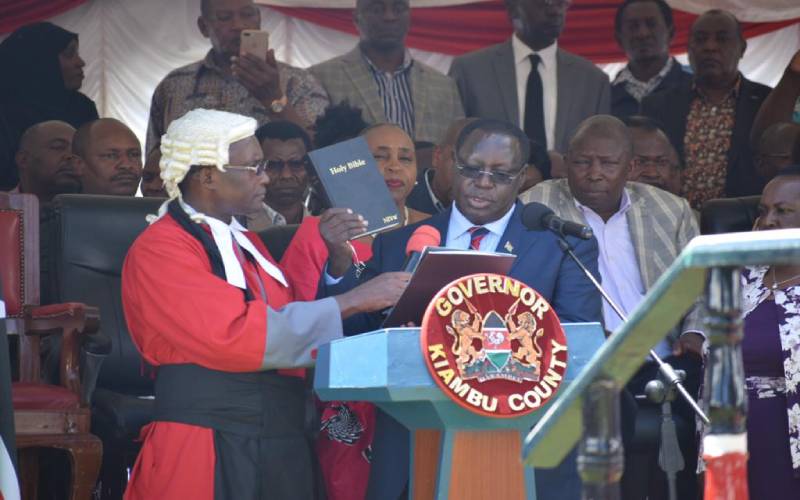×
The Standard e-Paper
Fearless, Trusted News

Justice John Onyiego swears in Dr James Nyoro as the third Governor of Kiambu at the County Headquarters on Friday afternoon. [Standard]
The dust has settled after the swearing-in of James Nyoro as Kiambu’s third governor but after a heated argument on whether he had to wait for 10 long days or needed a few hours to be sworn in and have the seat.